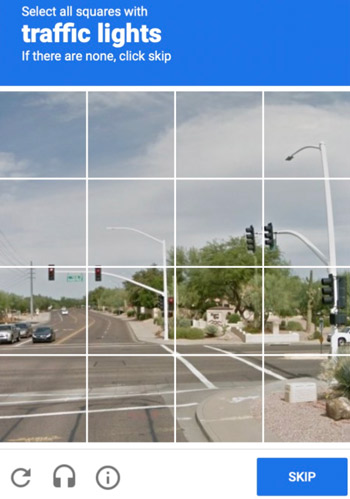Fasting Vitamin C
- If you're intermittent fasting, you already know that giving your body a break from eating can have big benefits for your health. But what about fasting supplements?
- Fasting can affect the way your body absorbs certain vitamins and medications, so you'll want to take them with food.
- Some supplements can be taken on an empty stomach, while others will actually break your fast. Get the details on intermittent fasting supplements below.
Intermittent fasting improves your focus, torches body fat and gives aging a run for its money. Fasting means abstaining from food for an extended period of time—but what about supplements? It might seem counterintuitive, but some fasting supplements can actually help your body burn fat for fuel.
So, can you take supplements while fasting? It depends. Here's the bottom line on what dietary supplements to take, what to skip and the science behind how it all works.
What supplements to take during a fast

These intermittent fasting supplements are meant to be taken on an empty stomach, or they're unlikely to break a fast. Pay attention to how you feel. Some people can't stomach any supplements without food. If that's you, try taking them 20-30 minutes before you have a meal instead.
- Creatine: Whether you take it pre-workout or post-workout, creatine isn't likely to break your fast because it contains zero calories and doesn't affect your insulin levels.
- Electrolytes: Think potassium, sodium and calcium. As long as your electrolyte supplement doesn't contain any sweeteners or calories, it's fine to take it during a fast—and can even help you manage the side effects of switching to ketosis. Find out why electrolytes are great keto fasting supplements with our keto supplements guide.
- L-tyrosine: No worries here—this is meant to be taken on an empty stomach. L-tyrosine can help you manage stress and support your mood. It's an amino acid, but it's unlikely to break a fast when taken in lower doses.
- Probiotics: These are beneficial gut bacteria, and good gut health benefits your entire body. Some probiotic supplements are meant to be taken without food, when stomach acid levels are lower. Check the label on your probiotic supplement for the manufacturer's recommendations.
- Prebiotics: Probiotics need to eat, and PREbiotics feed your good gut bacteria to support a healthy gut microbiome. Bulletproof InnerFuel Prebiotic contains 0 grams of sugar and 0 grams of net carbs, and it mixes easily in hot or cold liquids. Try it with black coffee in the morning.
- Water-soluble vitamins: You can take vitamins B and C with water during a fasting period. Vitamin C is usually pretty easy on an empty stomach, but B-complex vitamins can make people feel nauseous when they're consumed without food. If that happens to you, just take these vitamins when you break your fast.
What supplements to take with food

Some of these supplements are best absorbed with food in your stomach. Others will break your fast, so save them for your eating window.
- Amino acids: L-glutamine and branched-chain amino acids (BCAAs) are usually a no-go while fasting because they can kick you out of ketosis by raising your insulin levels.[1]
- Curcumin and omega-3 fatty acids: Supplements like Bulletproof Curcumin Max and Bulletproof Omega Krill Complex are easier for your body to absorb when they're taken with food. So, have them during your eating window.
- Chromium and vanadium: These minerals can actually drop your blood sugar levels too low while you're fasting. If your insulin levels dip, you run the risk of hypoglycemia—aka low blood sugar and tanked energy levels. Even a small bout of hypoglycemia can lead to problems adjusting and managing your moods. Take these supplements when you break your fast.
- Fat-soluble vitamins: This category includes vitamin D, vitamin E and multivitamins that contain fat-soluble ingredients. These vitamins don't dissolve with water, so take them with a meal. If you're not sure, check the directions on the label. Bulletproof Vitamins A-D-K says to take one softgel daily with food.
- Gummy vitamins: These vitamins are usually sweetened and made with gelatin, which contains protein—all of which means they'll likely break a fast.
- Iodine: For maximum absorption, take your kelp powder or potassium iodide capsules with food.
- Magnesium: Some people can experience an upset stomach when they take a magnesium supplement on an empty stomach.
- Protein powder: Whether we're talking about whey or collagen protein, any protein powder breaks a fast because it contains calories and triggers an insulin response. So, save your protein powder for your eating window.
- Zinc and copper: These two minerals work better together, so you'll often see them combined in a pill form. Take Bulletproof Zinc with Copper with food.
The science behind fasting supplements

In order to get the biggest health benefits of intermittent fasting, you want to avoid consuming anything that breaks your fast. That includes any calorie-containing foods or beverages, as well as supplements that trigger digestion or spike your insulin levels.
Here's why:
- When you go extended periods without eating, you promote autophagy, the process through which your cells get rid of built-up waste.
- Fasting helps your body enter ketosis, a metabolic state where you burn fat for fuel. Your body needs energy to function. When you skip meals, it burns through your stored glucose (from carbohydrates) and then starts burning fat for energy.
- Fasting may also cause your body to secrete a protein called fasting-induced adipose factor (FIAF), which signals that it's time to burn fat.[2] [3]
All that to say, you want to be mindful when supplementing because some of them will break your fast and kick you out of ketosis. Others won't necessarily break your fast—but they aren't meant to be taken on an empty stomach.
Why is that a big deal? If your supplement is meant to be taken with food, but you take it without, it'll pass through your body without being completely absorbed. Others will just make you nauseous if taken on an empty stomach. No, thanks.
Heads up: If you take prescription medications, talk to your healthcare provider before you switch up your supplementation routine. Some medications have to be taken within specific timeframes. For others, taking them on an empty stomach can interfere with their effects.
What about drinks like coffee, tea and bone broth?
Black coffee and unsweetened tea both technically have calories, but the amount is minimal (less than five calories) and unlikely to break your fast. If you're a fasting purist, stick to water. If you want caffeine, coffee and tea are totally fine.
Bone broth is a popular keto fasting supplement because it's a satisfying way to replenish nutrients and minerals during a fast. It has minimal calories and protein, and no carbohydrates, so a small amount won't dramatically impact the ketogenic or fat-burning benefits of fasting. But if you want to maximize autophagy, just save the bone broth for your eating window.
The bottom line: Yes, you can use some supplements while you're in a fasted state. If your vitamins and medication upset your stomach or need to be taken with food, take them during your eating window. Experiment to find what works for you and helps you thrive.
Read next: How to Do Intermittent Fasting for Weight Management
Join over 1 million fans
Sign-up for the Bulletproof mailing list and receive the latest news and updates!
Source: https://www.bulletproof.com/supplements/dietary-supplements/supplements-while-fasting/


0 Komentar